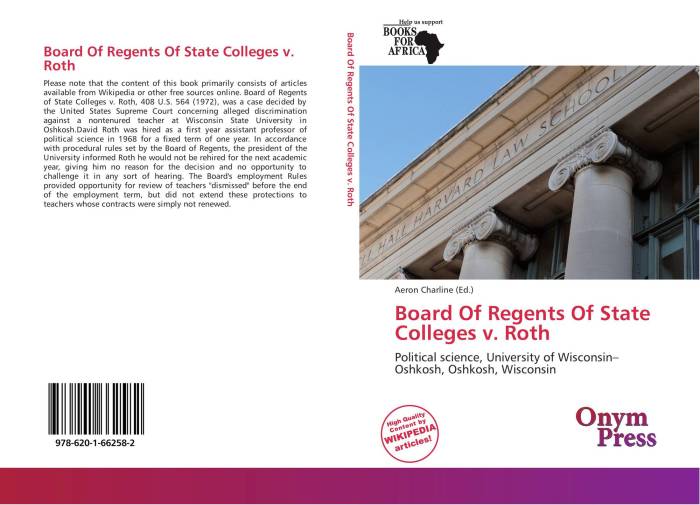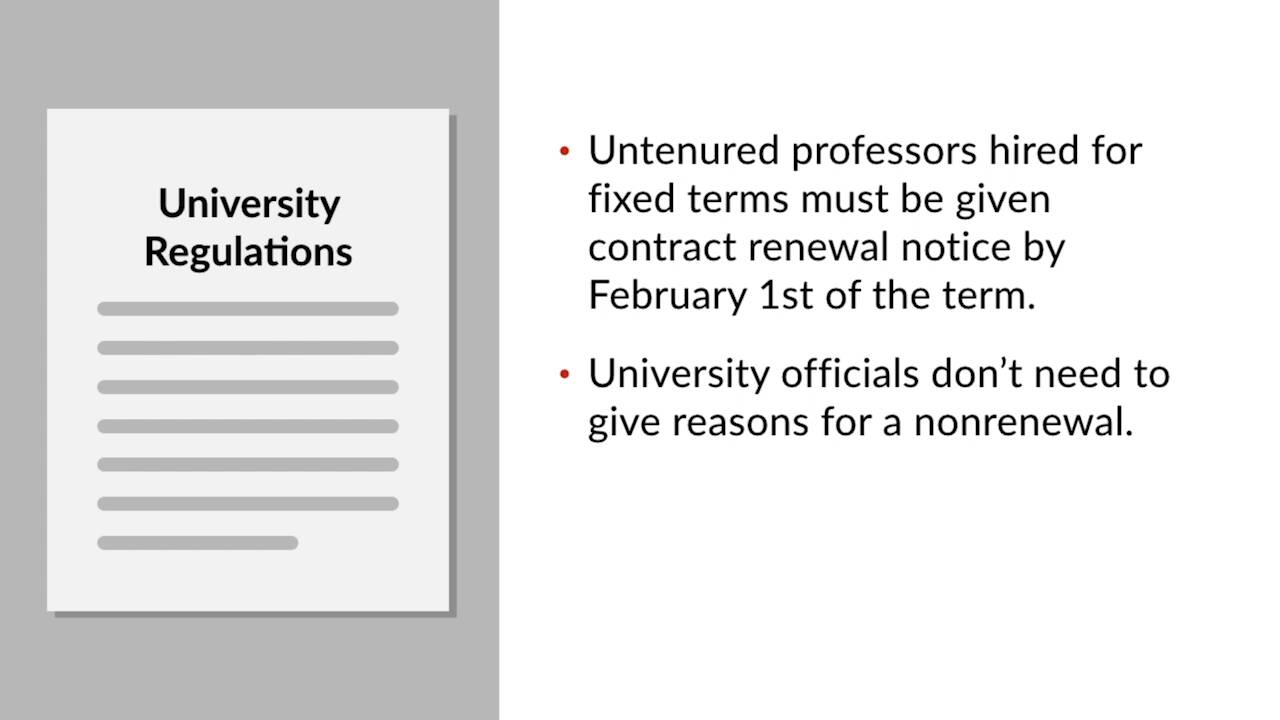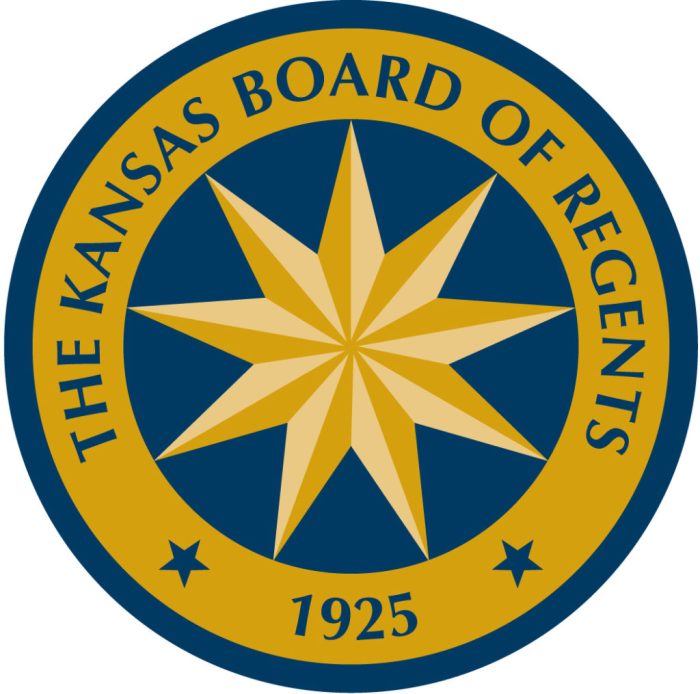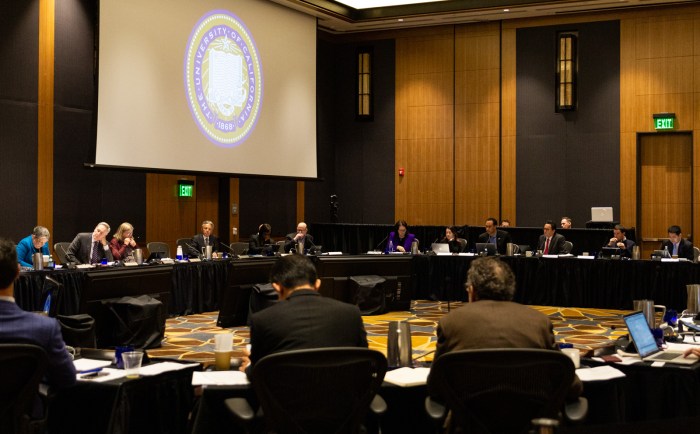Board of regents of state colleges v roth – In the landmark case of Board of Regents of State Colleges v. Roth, the Supreme Court grappled with the intricate interplay between property interests and due process in the context of public employment. This decision has had a profound impact on the legal landscape, shaping the rights of public employees and the obligations of their employers.
Roth, a non-tenured professor at a state college, challenged his dismissal without a pre-termination hearing. The Court’s analysis centered on whether Roth had a legitimate property interest in continued employment, which would trigger the procedural due process protections of the Fourteenth Amendment.
Overview of Board of Regents of State Colleges v. Roth

In 1972, the Supreme Court ruled in Board of Regents of State Colleges v. Roththat public employees do not have a property interest in continued employment unless there is a “legitimate claim of entitlement” to such employment. This case significantly shaped public employment law by clarifying the due process rights of public employees.
Legal Framework
The Fourteenth Amendment’s Due Process Clause protects individuals from being deprived of life, liberty, or property without due process of law. In the context of public employment, the Supreme Court has held that public employees have a property interest in their jobs if they have a “legitimate claim of entitlement” to continued employment.
This entitlement may be created by statute, contract, or the “rules and understandings” that govern the employment relationship.
Analysis of Roth’s Property Interest
In Roth, the plaintiff, David Roth, was a non-tenured professor at Wisconsin State University. He was informed that his contract would not be renewed at the end of the academic year. Roth argued that he had a property interest in continued employment because his contract was not renewed for reasons other than his performance.
The Supreme Court disagreed, holding that Roth’s contract did not create a legitimate claim of entitlement to continued employment.
Due Process Considerations
The Court also held that Roth did not receive adequate procedural due process before his termination. The Court found that Roth was not given adequate notice of the reasons for his termination or an opportunity to respond to those reasons.
This holding has been interpreted to mean that public employees must be given a pre-termination hearing before they can be terminated.
Impact of Roth on Public Employment Law, Board of regents of state colleges v roth
Rothhas had a significant impact on public employment law. The case has been cited in numerous subsequent cases involving the termination of public employees. The Court’s holding that public employees do not have a property interest in continued employment unless there is a “legitimate claim of entitlement” has made it easier for public employers to terminate employees without providing them with a pre-termination hearing.
Contemporary Applications
Rothcontinues to be cited in cases involving the termination of public employees. For example, in Cleveland Board of Education v. Loudermill(1985), the Supreme Court held that public employees have a property interest in continued employment if they can show that they have a “mutually explicit understanding” that they will not be terminated without a pre-termination hearing.
Rothhas also been cited in cases involving the termination of public employees for speech-related activities. For example, in Garcetti v. Ceballos(2006), the Supreme Court held that public employees do not have a First Amendment right to free speech when they are speaking in their official capacity.
FAQ Explained: Board Of Regents Of State Colleges V Roth
What is the significance of the Board of Regents of State Colleges v. Roth case?
Roth established the legal framework for determining whether public employees have a property interest in continued employment, which triggers due process protections before termination.
What are the key legal principles governing public employment?
The Fourteenth Amendment’s Due Process Clause and the concept of property interests are central to public employment law, ensuring that public employees are not deprived of their rights without fair procedures.
How did the Court determine that Roth did not have a property interest in continued employment?
The Court analyzed Roth’s employment contract and found that it did not create a legitimate entitlement to continued employment, as it was terminable at will by either party.


